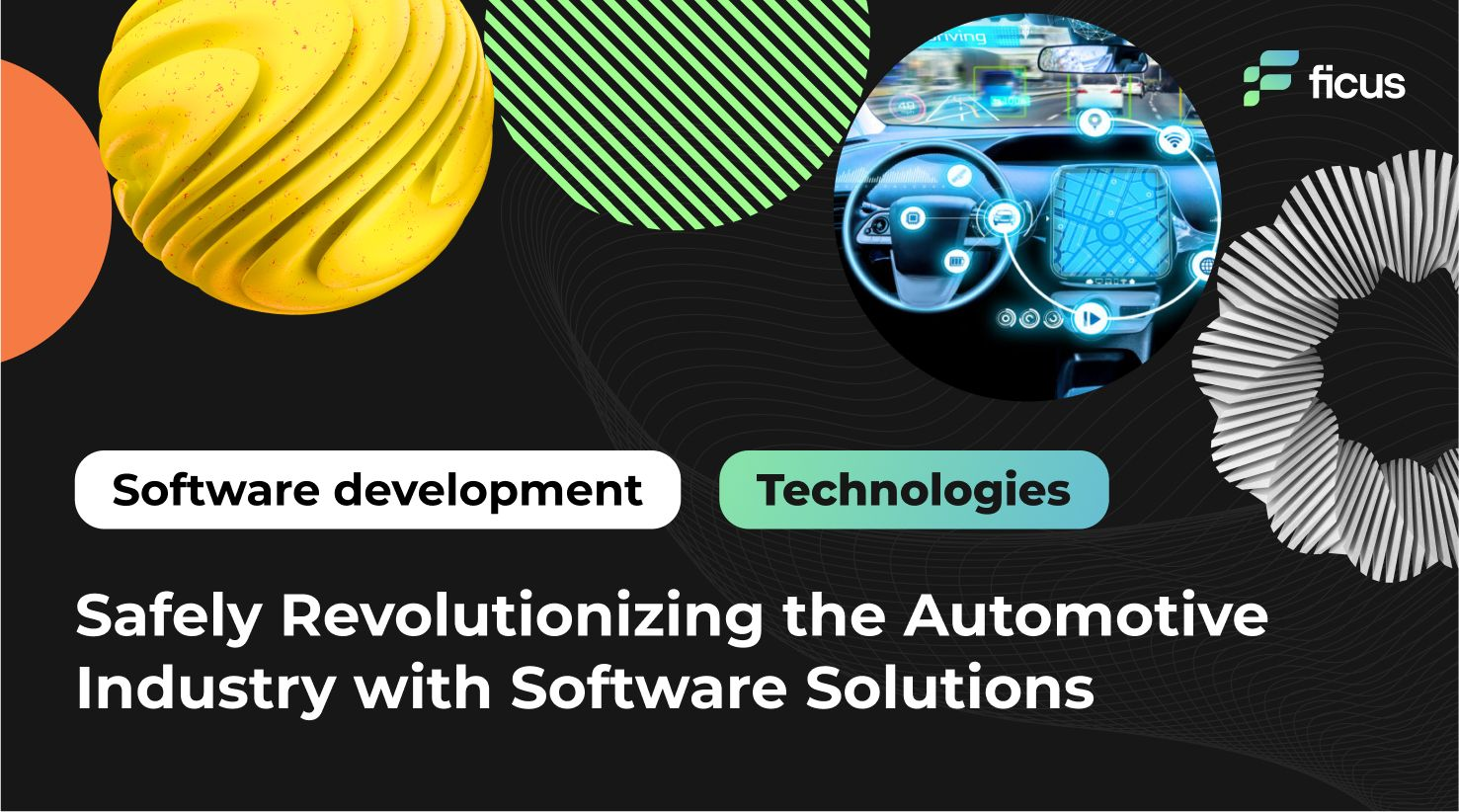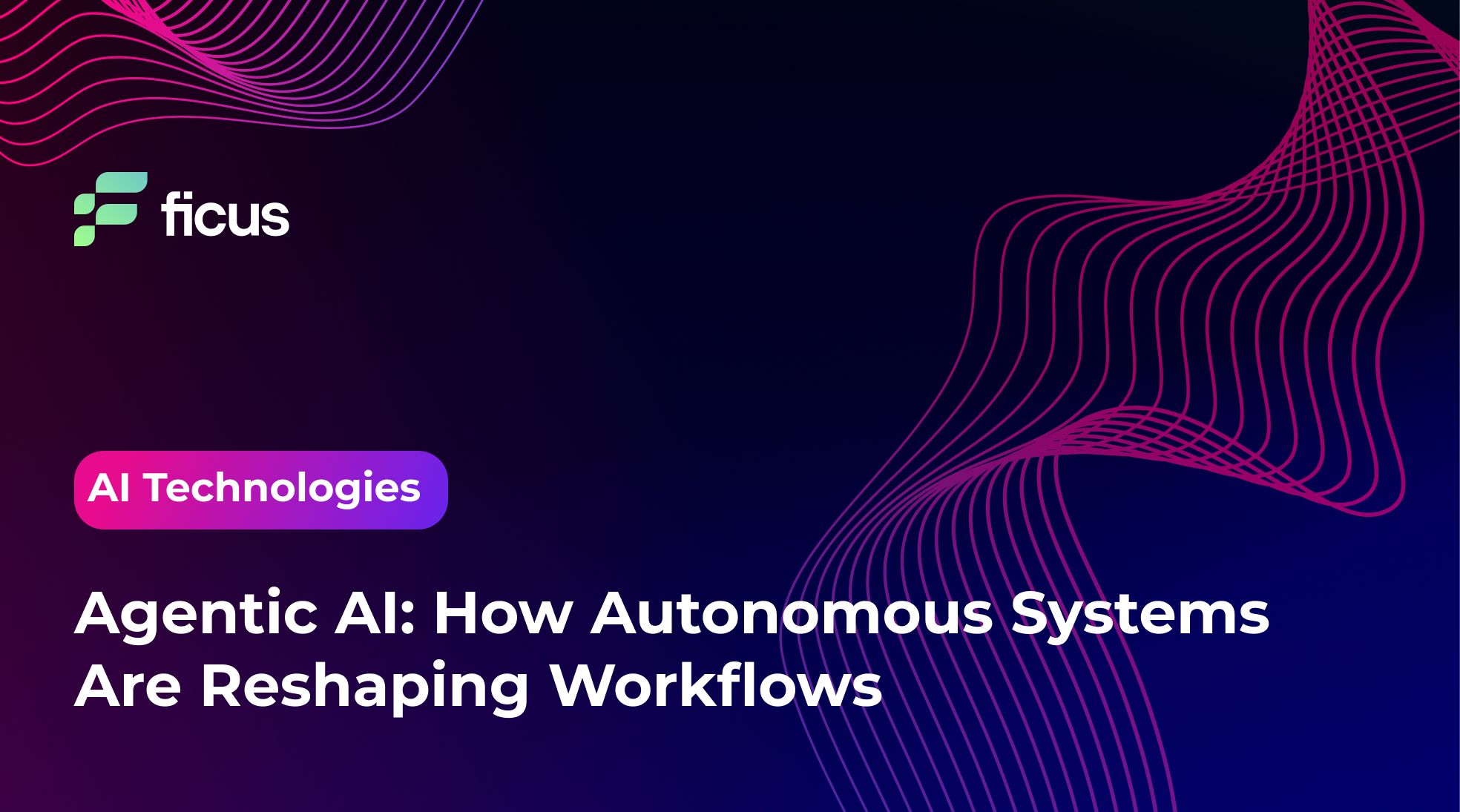The automotive industry is undergoing a major transformation driven by advances in technology and automation in the automotive industry. From the emergence of self-driving cars to sophisticated infotainment systems, the impact of software development on this sector is undeniable and growing. This evolution signals a profound change in transportation, hinting at an innovative and interconnected future for the automotive industry. As we delve deeper into software development’s changes to the automotive industry, it becomes clear that how we navigate and interact with vehicles is on the verge of a dramatic transformation.
- EVs and autonomous driving technologies are transforming the automotive industry.
- Software-defined vehicles prioritize software for adaptability and updates.
- Quality and safety are paramount in automotive software development.
The role of software development in the automotive industry
Software development has emerged as a transformative force in the automotive industry, reshaping every facet from operational functionality to driver interaction. The evolution of software within vehicles has made it a linchpin for integrating advanced features, from enhancing driving pleasure with superior infotainment systems to bolstering safety through obstacle detection and accident prevention mechanisms. As automation in the automotive industry progresses, the reliance on cutting-edge software for developing cars equipped with the latest technology intensifies. This trend underscores the integral role of software developers in pushing the boundaries of what’s achievable, heralding a dynamic future for the automotive industry. With every software update and innovation, the automotive industry inches closer to a future where automation elevates the driving experience to unprecedented levels, signaling an exciting roadmap for what lies ahead.

The benefits of software development for the automotive industry
The automotive industry is at the forefront of embracing software development, heralding a transformative era of efficiency and innovation. The integration of advanced technologies such as AI, ML, and blockchain is propelling automation in the automotive industry, leading to many benefits shaping its future. Here are some of the pivotal advantages:
- Enhanced Safety through Autonomous Driving: Autonomous vehicles, powered by software minimize accidents caused by human error. Their ability to navigate traffic more smoothly translates to increased fuel efficiency and a safer driving experience.
- Improved Efficiency and Connectivity: Software development enables vehicles to stay connected and updated, crucial for maintaining vehicle safety and performance. However, it necessitates robust cybersecurity measures to shield against potential cyberattacks, ensuring the protection of the vehicle and its data integrity.
- Software Validation and Verification: Accounting for a significant portion of the automotive software market, these processes are vital for ensuring the reliability and performance of automotive software, facilitating quicker debugging, and continuous integration.
- Skilled Workforce Demand: As software development becomes more integral to the automotive industry, the demand for a skilled workforce is surging. This calls for substantial investment in training and development, ensuring a pool of experts proficient in the latest technologies.
While the future of the automotive industry looks promising with software-driven automation, it also presents challenges, such as the need for continuous innovation, cybersecurity, and talent acquisition. Navigating these challenges effectively will be key to harnessing the full potential of software development in revolutionizing the automotive industry.
How software development is changing the way cars are designed and manufactured
Software development is revolutionizing the automotive industry, altering traditional car design and manufacturing approaches. Using Computer-Aided Design (CAD) software, creating precise 3D models for vehicle components is now more efficient, enabling engineers to conduct virtual tests before actual production. This innovation significantly slashes the time and costs of prototyping and testing, departing from conventional methods. Furthermore, automation in the automotive industry has introduced robots capable of executing welding and assembly with unmatched precision, optimizing production lines while reallocating human resources to more intricate tasks. Integrating big data analytics and AI into manufacturing processes allows for real-time monitoring, swiftly identifying and addressing issues, thus enhancing overall production efficacy. These advancements in software development are paving the way for a smarter, more efficient future for the automotive industry.
Looking for Automotive Software Developers?
Contact usFour ways that automation is revolutionizing the automotive industry
Automation is redefining the automotive industry at an unprecedented pace, marking a significant shift in how vehicles are designed, manufactured, and interacted with. As we stand at the cusp of this transformation, the divide between adopters of these cutting-edge technologies and those lagging behind is expanding. This shift towards automation in the automotive industry is not just altering operational efficiencies but is setting new benchmarks in quality, speed, and adaptability. Here, we explore four pivotal ways through which automation is steering the future of the automotive industry toward innovation and excellence.
Collaborating with Robots
Automation in the automotive industry is being revolutionized by deploying collaborative robots, commonly known as ‘Cobots.’ These innovative machines are reshaping production by working alongside human counterparts to boost efficiency and enhance safety on the manufacturing floor. Cobots play a critical role in various aspects of manufacturing, from assembling components to building entire vehicles, showcasing their versatility and importance for the future of the automotive industry. Their introduction addresses labor challenges while meeting the soaring global demand, demonstrating a significant advancement in automation in the automotive industry. This collaboration between humans and robots paves the way for unprecedented production capability, hinting at a transformative future for the automotive industry where the potential for further automation advancements remains vast.
Artificial Intelligence: Driverless and Autonomous Vehicles
The field of innovation in the automotive industry is undergoing profound changes due to the integration of artificial intelligence, particularly through the development of self-driving and autonomous vehicles. This leap forward in automotive automation marks a major shift towards a future automotive industry in which vehicles navigate and make decisions without human intervention. Using sophisticated algorithms, AI interprets data from sensors and sonars to navigate roads safely and efficiently, marking a major milestone in the development of the automotive industry. These advances not only improve the driving experience but also promise to redefine transportation logistics, emergency response, and accessibility for people with disabilities. With the rise of automation in the automotive industry, expectations for the future of the automotive industry are rising, and autonomous vehicles are at the forefront of this transformative era. The implications for safety, efficiency, and social mobility hint at a radically different landscape for the automotive industry shortly.
Cognitive Automation in Vehicles
Cognitive automation is redefining the automotive industry by integrating advanced machine learning and natural language processing capabilities, bringing automation to the automotive industry to an unprecedented level. This innovation allows vehicles to not only operate autonomously but also learn from human behavior and communicate with each other, increasing safety and efficiency on the road. Major players like BMW and IBM are at the forefront, driving this transition to a smarter automotive industry. The essence of cognitive automation lies in its ability to adapt and evolve, mimicking human decision-making and reactions during driving scenarios, such as applying the brakes during potential collisions. This aspect of automation in the automotive industry is crucial to the future, promising to reduce the number of accidents and significantly improve road safety, marking a crucial step towards a more intelligent and interconnected automotive ecosystem.
Overall Workflow Management
Automation in the automotive industry is transforming overall workflow management by optimizing processes and increasing efficiency. Thanks to the introduction of IoT-based automation, the automotive industry has witnessed a significant change in fleet management. This leap forward allows for integrating advanced technologies, providing increased safety and optimized operational efficiency. By automating tasks previously performed manually, the industry is seeing a shift to more sustainable and manageable workflows. Platforms such as Ridecell’s Fleet IoT Automation exemplify this transition by offering a unified solution that promotes safety and innovation. Advances like these are not just changing the automotive industry; they are setting a new standard for the future of the automotive industry. Leveraging these technologies ensures that businesses remain competitive, agile, and ready for a future where automation is not just a luxury but a necessity to stay ahead in a rapidly evolving market.
The future of automotive technology and how software development will play a role in it
The future of the automotive industry is on the verge of revolutionary change, largely driven by advances in software development. As the automotive industry continues to evolve, the role of software development is becoming increasingly central, influencing every aspect from design to maintenance. This integration of software allows for smarter and safer vehicles, marking a significant leap forward in automotive industry standards. The emergence of artificial intelligence, machine learning, and predictive analytics in software development is paving the way for autonomous vehicles and enhanced connectivity, changing the driving experience. In addition, the ability to customize vehicle features through software means that personalization options for consumers are expanding, adding a new dimension to vehicle ownership. Thus, software development is a key driver of automation in the automotive industry, promising a future in the automotive industry in which innovation, safety, and customization come together to redefine mobility.
Final words
The automotive industry is on the verge of a new era, and automation in the automotive industry is playing a key role in shaping its direction. Advances in software development are improving the efficiency and safety of vehicles and laying the groundwork for a transformative future for the automotive industry. This future is characterized by the integration of artificial intelligence, machine learning, and advanced analytics, which are essential to developing autonomous vehicles and improved connectivity. As these technologies evolve, they promise to provide a level of customization and safety previously unimaginable, marking a new dawn for the automotive industry.
By focusing on innovative software solutions, Ficus Technologies can help automotive companies harness the full potential of automation in the automotive industry. For example, by developing proprietary artificial intelligence algorithms, Ficus Technologies can improve vehicle safety systems, making autonomous driving a reliable reality. In addition, by implementing advanced data analytics, the company can optimize vehicle performance and maintenance schedules, ensuring that the automotive industry remains at the forefront of technology and sustainability.
Yes, software solutions can significantly improve vehicle maintenance and reduce breakdowns. By leveraging data analytics and predictive maintenance technologies, the software can analyze vehicle operation data in real time, identifying patterns and potential issues before they lead to breakdowns. This allows for proactive maintenance, ensuring that parts are serviced or replaced based on their actual condition rather than on a predetermined schedule. Additionally, software can optimize vehicle performance, monitor system health, and provide alerts for immediate attention, reducing the likelihood of unexpected failures. Overall, the integration of software solutions in vehicle maintenance routines enhances reliability, safety, and efficiency, leading to fewer breakdowns and extended vehicle lifespans.
Cybersecurity is important in implementing software solutions in cars, protecting against unauthorized access, data leakage, and potential cyberattacks. As vehicles become increasingly connected and rely on software to perform various functions, from navigation to autonomous driving, they become more vulnerable to cyber threats. Implementing robust cybersecurity measures is essential to protect sensitive data, ensure user privacy, and maintain the integrity of vehicle operating systems. Effective cybersecurity strategies include encryption, regular software updates, intrusion detection systems, and secure communication protocols, which together help protect vehicles from cyber threats and ensure the safety and trust of users in automotive technology.









This article offers a comprehensive overview of how software drives significant changes in the automotive industry. It discusses the benefits of EVs and autonomous driving while highlighting the importance of software-defined vehicles and ensuring quality and safety. It’s a must-read for anyone involved or interested in automotive technology.
The article discusses the industry-changing effects of software, notably with the emergence of electric cars and autonomous driving. It highlights the pivotal role of software-defined vehicles and the need for stringent quality and safety measures. It is a must-read for automotive professionals and tech enthusiasts.